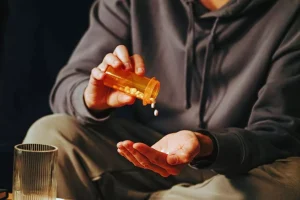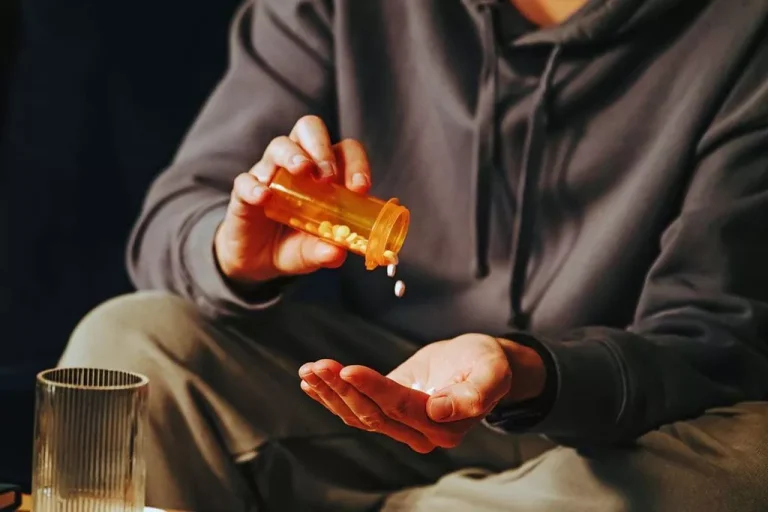
There is also no safe time for alcohol use during pregnancy. While FASD is less severe than FAS, children with FASD can have learning difficulties, problems with behaviour, physical disability, and emotional and psychiatric problems that last a lifetime. Whether or not a baby is affected mildly or severely with FASD is directly linked to how much and how often a woman drinks during pregnancy. The more you drink, the more your baby’s growth will be affected and the less healthy your baby will be.

Find more top doctors on
This is especially true for those in a stable and nurturing home. This survey provides information on the prevalence, patterns, and consequences of alcohol, tobacco, and illegal drug use and abuse in the general U.S. population, 12 years and older. It is conducted by the Substance Abuse and Mental Health Services Administration.
Alcohol passes directly from your body to your baby’s and can cause serious health problems for your baby.
- Although some of the lifelong effects of FASD can be recognized early, other issues become apparent later in life.
- Alcohol use during pregnancy might affect one baby more than another.
- The standard advice is for people to abstain from alcohol during pregnancy.
- And even if you do everything by the book, the highest risk of miscarriage is in the first trimester — and it often happens due to issues outside of your control (like chromosomal abnormalities).
- The placenta grows in your uterus (womb) and supplies the baby with food and oxygen through the umbilical cord.
The trouble with guidelines that recommend total abstinence is they don’t involve nuance. There are certainly women who truly have a problem with alcohol and whose drinking puts their babies at risk. For women who do not have an unhealthy relationship with alcohol and who want to have a drink on a special occasion, they shouldn’t fear being judged or have others make that decision for them. However, pregnant patients who choose to drink should understand that any alcohol consumption – not just binge drinking – increases specific risks during pregnancy. For example, this 2014 study looked at 1,303 pregnant women in the United Kingdom and their alcohol consumption before pregnancy and during all three trimesters. Results suggested that drinking — even fewer than two drinks per week — in the first trimester increased risk of complications, like lower birth weight and pre-term birth.
What if I drank before I realized I was pregnant?

If you would like to talk to someone about your drinking, you can speak to your midwife, obstetrician, practice nurse, GP or health visitor. Once they know how you are feeling and why you are drinking, the person you tell will be in a better position to offer you the right help and information. This information is for you if you are pregnant or are planning to have a baby. It may also alcohol during pregnancy be helpful if you are a partner, relative or friend of someone who is pregnant or planning a pregnancy. Copyright 2025 by the American College of Obstetricians and Gynecologists. Read copyright and permissions information.This information is designed as an educational aid for the public.
The CDC caused controversy in February 2016 when it published a report intended to raise awareness of the risk of FASD due to drinking before a woman realizes she is pregnant. The report recommended that women who are sexually active and want to get pregnant should avoid alcohol, and women who are sexually active and don’t want to get pregnant should use an effective birth control method. The report noted that half of pregnancies are unplanned, and even for women trying to conceive, most won’t know they’re pregnant until four to six weeks into the pregnancy. It looks at whether it is safe to drink alcohol during pregnancy and how it affects the unborn baby. They didn’t find a strong correlation between drinking early in pregnancy and an increased likelihood of these complications, so some people take this to mean it’s A-OK.
- The best way to keep your baby safe is to avoid drinking any alcohol when you are pregnant and to get the right support to stop drinking, if you need it.
- While early diagnosis and treatment can improve the child’s health and behavior, there is no cure for FASD currently.
- The CDC caused controversy in February 2016 when it published a report intended to raise awareness of the risk of FASD due to drinking before a woman realizes she is pregnant.
- Researchers who knew nothing about the maternal consumption of alcohol during the pregnancy examined the 5-year-old children of those pregnancies.
- To reduce the risk of miscarriage, women who are trying to conceive should consider avoiding alcohol.
- I am not sure how we got to the point that in May 2016, New York City had to clarify guidelines prohibiting bars and restaurants from refusing to serve alcohol to pregnant women.

The baby’s brain is developing throughout pregnancy and can be affected by exposure to alcohol at any time. According to the Royal College of Obstetricians & Gynaecologists, if a person drinks before they know they are pregnant, the risk to the fetus is generally small. However, the organization also recommends discussing this with a healthcare professional and stopping drinking. For decades, researchers have known that heavy drinking during pregnancy can cause birth defects. https://ecosoberhouse.com/ But the potential effects of small amounts of alcohol on a developing baby are not well understood.
A person viewing it online may make one printout of the material and may use that printout only for his or her personal, non-commercial reference. This material may not otherwise be downloaded, copied, printed, stored, transmitted or reproduced in any medium, whether now known Sober living house or later invented, except as authorized in writing by the AAFP. See permissions for copyright questions and/or permission requests. Your baby does not have a fully developed liver and cannot process alcohol. Additionally, children with FAS may often have trouble mixing socially in school or similar settings.
Signs That a Pregnant Woman is Drinking

CDC works with partners across the country to address alcohol and other substance use during pregnancy and FASDs. These scientific findings help inform evidence-based care and resources. They collaborate to provide training to healthcare professionals and disseminate updated information. There is no proven safe amount of alcohol a woman can drink during pregnancy.
Post a Comment